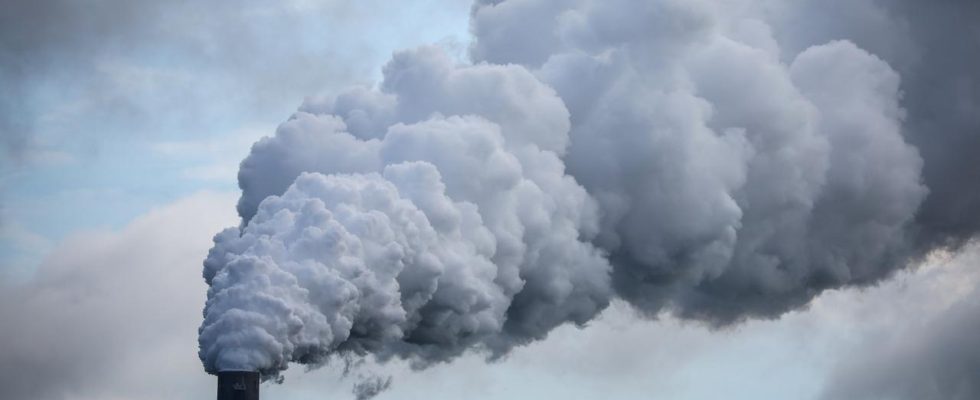Carbon dioxide emissions from fossil fuels are at record levels again this year. But there is some good news, according to a carbon budget report.
It was a bit like the sketch “Dinner for one,” it was said at the Science Media Center Germany’s press event on the 2023 global carbon budget: Every year the figures are published showing how much CO2 we are still emitting worldwide. And, as every year, there is bad news.
Record levels of CO2 from fossil fuels
Judith Hauck from the Alfred Wegner Institute in Bremerhaven also explains this. She is one of the authors of the this year’s report the “Global Carbon Project”, on which more than 120 researchers worked. “Unfortunately, we have the sad record to report that fossil emissions have reached a record level again this year. They are higher than ever before,” said the biogeochemist.
Instead of falling, greenhouse gas emissions from fossil fuels will be 1.1 percent higher worldwide this year than last year. We will emit 36.8 billion tons of CO2 in 2023. Fossil energy still accounts for the majority of greenhouse gases caused by humans. The rest of the total 40.9 billion tonnes of CO2 emissions comes from, for example, forests being cleared.
Sinks on land and in the sea
The report also calculates how much CO2 is absorbed by land and sea. For example, through forests that store carbon dioxide through their growth. Or through the ocean, which naturally stores CO2. Approximately half of the emissions we cause are deducted from the balance sheet.
The number varies from year to year. For example, depending on whether the weather phenomena El Niño or La Niña are present. But also because forest fires like the big fires in Canada this year can significantly reduce the so-called land depression. Or because changing winds can cause the oceans to absorb less CO2. Fires and changing winds are in turn favored by climate change. So a vicious circle.
Underground storage has so far had little effect on the climate
Measures such as storing CO2 underground or under the sea are also repeatedly discussed at the COP as solutions to avoid having to abandon fossil energy. But they are expensive and have so far hardly made up a significant proportion, according to Julia Pongratz from the LMU Munich, who also worked on the report.
Currently, measures such as the so-called CCS (Carbon Capture and Storage) only capture 0.000025 percent of the emissions caused by fossil fuels. “The message is currently very clear that we cannot avoid a significant reduction in emissions,” said Pongratz.
The EU and USA have reduced emissions
But there is also some good news. For example, fossil emissions have fallen in the EU and the USA. However, they are still rising in other countries, which are also among the largest emitters. This is especially true in China, where many of the products we use are manufactured. In India, emissions per capita are still significantly below those in the EU. Overall, however, emissions are still increasing there too.
Nevertheless, climate scientist Jan Minx from the “Mercator Research Institute on Global Commons and Climate Change” in Berlin, who was not involved in the study, sees us in the EU as having a responsibility: “We have to do our homework here and get better at climate protection. But we also have to encourage others to become better and help others who don’t have enough resources to become better,” said Minx.
1.5 degree target hardly sustainable
In seven years, according to the report, the CO2 budget with which we could limit the temperature increase to less than 1.5 degrees will be used up at current emissions. In order to still have a 50 percent chance of maintaining this maximum target, we would have to reduce our emissions more every year than at the height of Corona.
However, the global community appears to have learned little from the pandemic. International air traffic alone increased by 28 percent last year. But even if a limit of 1.5 degrees may now seem unrealistic: every tenth of a degree less is important, according to the researchers. And so the hope remains that the balance sheet will be better next year.

